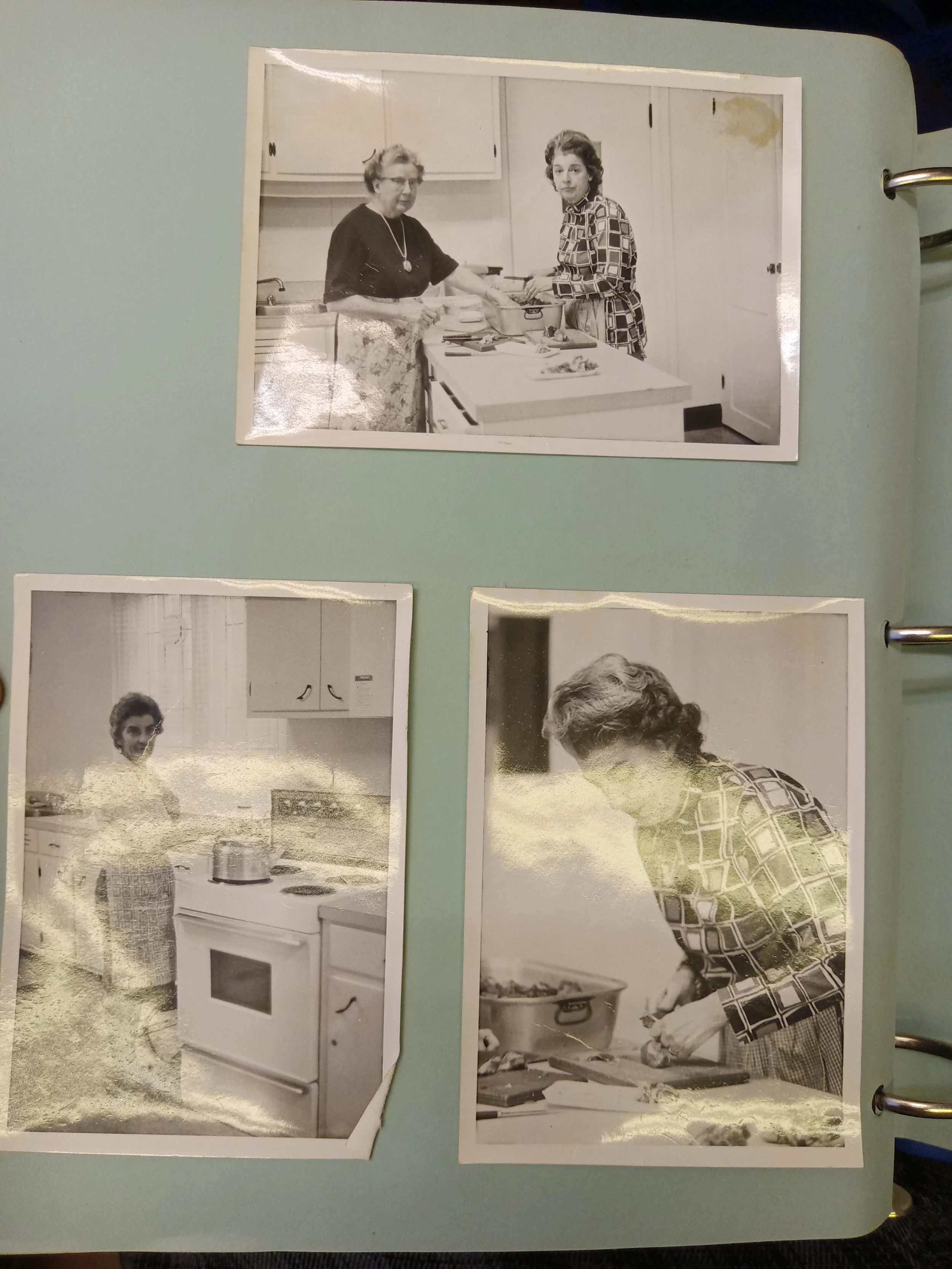February 5th, 2023: Stew for a Few
St. Matthias’ was officially founded as a mission of St. George’s, Place du Canada, in 1873, which means our community is 150 this year! For the next 12 months, we’ll be diving into the archives to shine the spotlight on particularly interesting parts of our history.
An illustration of Rev. Jack Doidge as Santa Claus, delivering Meals on Wheels dinners on his sleigh. The rector was heavily involved in Meals on Wheels’ early years, primarily as a volunteer driver.
Twice a week, every week, volunteers gather in the St. Matthias’ kitchen to cook, package, and deliver meals. They’ve been doing it since 1965, when the St. Matthias’ Association of Women collaborated with the Victorian Order of Nurses and the Montreal Volunteer Bureau on a pilot project they called “Stew for a Few.” “If you have not already confirmed your willingness to help in this truly Christian work,” AW President Phoebe Seely wrote in her report to Vestry in January of 1966, “I am sure that a place can be found for you.” She reported that, under the capable guidance of Kathleen Stavert, 18 hot meals would be delivered twice a week for the following 6 months, to patients selected by the VON.
But “Stew for a Few” lasted longer than 6 months. Following recipes and a governance model sent to them from England, Kathleen and her 90 St. Matthias’ volunteers spent the spring of 1966 cooking up a storm, driving in all weather, chatting with patients, and teaching 22 other churches how to run a similar program; by June of 1966, when the 6 months of the pilot were finished, “there was really no question in anyone’s mind” as to whether St. Matthias’ would continue. “Meals on Wheels was rolling,” Kathleen wrote in her report to Vestry in January 1967.
In 1967, the team agreed to take on up to 24 recipients, still all referred by the VON, and continued to support other local churches in setting up their own programs. They also received generosity from some surprising places; the Vestry report for that year tells us that two former recipients donated small sums of money, and the milkman donated almost all the milk and butter. In 1968, the team suffered an unexpected loss: Kathleen, the “driving spirit behind Meals on Wheels from its inception,” passed away. Despite this setback, Meals on Wheels continued, and, in 1970, invited St. Andrew’s United Church to move from simply supplying money and volunteers to being a full partner.
In December 1966, Victoria Shipton of the Montreal Volunteer Bureau wrote an extensive report on the “Stew for a Few” pilot project, which you can read in full by contacting the St. Matthias’ office and asking to access the 2008 Commemorative Album & History. In Victoria’s words, the project was “an unqualified success,” not only because of how well it fed people, but because of the data Kathleen and her team collected on careful shopping, reasonable route lengths for drivers, time needed to prepare food, how to secure funding from within a church community, ideal volunteer schedules, dietary best practices, volunteer coordination best practices, and publicity. In 1966 as now, the St. Matthias’ program was one of the few Meals on Wheels instances that was exclusively run by volunteers, and as a result it became a model for many other churches in Montreal, most of whom has since closed down their programs.
Although Meals on Wheels is no longer run as a parish ministry at St. Matthias’, technically, it’s still a part of our outreach to the community. Bob Laxton, the current co-coordinator with Heather Barwick, submits a report to Vestry every year. Our kitchen is still being used free of charge, and, indeed, continued to be used through the worst parts of 2020 (see an interview with Heather here about that experience!). And every week, volunteers from St. Matthias’ and our surrounding community come together to take joy in cooking together, packaging food, and delivering it where it’s most needed. As Phoebe Seely wrote in 1966, a place can be found for you, too, in this program that is part of our history and, hopefully, part of our future as well.











